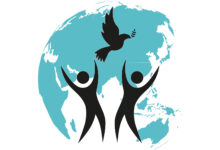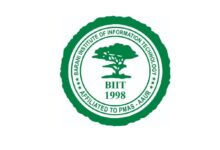Safer Charity Practices – A Way Forward

By Said Nasir
Pakistan, a land of generosity, sacrifice, accommodative behavior, is not only rich in culture but also in taking care of the underprivileged when it is needed. Beginning with its inception in the form of greater fraternity and accommodation for its brethren migrating from India to mass migration of Afghan refugees in 1979, Pakistan has always been home to acts of generous treatment towards human fellows. Charity is Pakistan’s uniqueness. Top class hospitals, schools, especially religious schools (Madrashas), blood donation societies and banks, Trusts, ambulance services, food distributaries, shelter homes and dozens of other explicit donation-based projects across Pakistan demonstrate its persona in terms of Philanthropic prisms. Every crises and calamities, among the first things, have received a prompt response from Pakistanis, rich and poor alike. Nothing else has been as frequent as alms, donations and charities have been all across Pakistan all across its history.
To begin with, charity being a common place in Pakistan, has never been so organized and institutionalized as it could have been. More fruitful it might be if channelized and rationalized well. Reasons for this may be lack of state patronage, institutionalization, regulations, registration mechanism, documentation and above all less transparent practices by the organizations. Also, charity has been, in one way or the other, misused by certain circles like religious zealots in anti-state activities, extremism, terrorisms, which has made every citizen conscious of this sacred act of donating. Keeping in view, the philanthropic landscape of Pakistan, it is imperative to streamline charities in such an organized way that it, not only, benefits the real needy ones, but is not misused as well.
Much has been recorded about charities in Pakistan. It is now time to streamline this rich but simultaneously volatile sector. Rational steps are needed to further strengthen the foundations of this area of benevolence. First and the foremost is transparency. How this can be achieved? Proper management of resources through legal channels may prove more beneficial and real to its desired value.
Charity is always wrapped with religious ribbons. So, to critically evaluate it liberally has become a sort of taboo in our society. But the first step towards the solution of a problem is the acceptability of the problematic areas. Charity should not be viewed from the perspective of evil alone, but every charity should not absolved from being scrutinized. Fundamentally and ideally, state should patronize it like modern welfare state. State operators must be used to maximize the benefits of charity. This will also serve the purpose of accountability and legality. It may also cater for the planning and management aspect of pooling up resources for the needy. Institutions like Pakistan Baiteul Mal and Zakaat Municipalities may be further strengthened and made transparent. State involvement may ensure state scrutiny as well.
The next step is to ensure the potential areas of donations, both in terms of receipts as all expenditures. Identifying such areas may attract healthy donations and may result in better output. “Charity is injurious unless it helps the recipient to become independent of it”. Again, state regulatory role should be involved in terms of state scrutiny of funds as well as defining the fruits of charities. Everybody everywhere with doing everything in the name of charities must be checked and discouraged so that to develop ‘Safer Charity Regime’ across Pakistan. Institutions like Aouqaaf, Tanzeem ul Madaris and other private Trusts may be made more responsible and transparent in this regard. Every Single penny should be counted for like public money.
Documentation like public enterprises and tax regime, is the singular step which can ensure the plausibility of sacred philanthropic practices. It alone can stop the private money slipping into ‘dirty hands’, thereby defying the very spirit of charity. Accountability through documentation and stringent regulatory customs can further rebuild the trust of those with distrust of [mis]using their donations. It can further trigger improved planning and increased fruitation. It can also safeguard the donors from incriminatory proceedings. Also, the international protocols warrant proper documentation and fair deals in all charities thus making Pakistan out of critical tentacles.
Documentation may be pursued through registration of all trusts, organizations, NGOs, individuals and even social groups involved in the field of philanthropy. Registration process must be made easy but truly viable enough that donations are not only counted for, but also made accountable in case of any criminal eventuality. This state-run documentation with registration may be followed in true letter and spirit. International protocols and best practices can be guiding stars for channeling and administering charities. Regulatory practices cannot be confined to state machinery alone. Donors and Philanthropists alike, nonetheless are responsible and accountable in terms of collecting, spending, planning, managing and above all guarding the donations against mal-practices and being misused. Donors, like good Philanthropists, must act as responsible citizens, thereby undertaking the responsibility of proper use of donations and charities. Beginning with the identification of areas and collection of charities, it must be expended with more caution, thus culminating into its real spirit – well being of the underprivileged.
Smaller amount of charity may lead to bigger contribution in terms of addressing the problems of underprivileged or making a big difference in terms of providing voluminous services. This smaller amount, nonetheless, must not be a source of bringing defamatory colours to charity. Social cliques involved in routine charity must be, at minimum, handled by committees of local notables and people of transparent character. Conclusively, charity must not be converted into an ultimate evil and curse for state, both internally and internationally. Starting with state organizations and individual Philanthropists, all the social elements must come forward and safeguard this blessing from becoming an unblessed activity. State, society, media and above all the donors at large must be responsible and accountable so that safer charity is promoted and promulgated in Pakistan and it really becomes the source of contentment for both – the donors as well as the doner.





